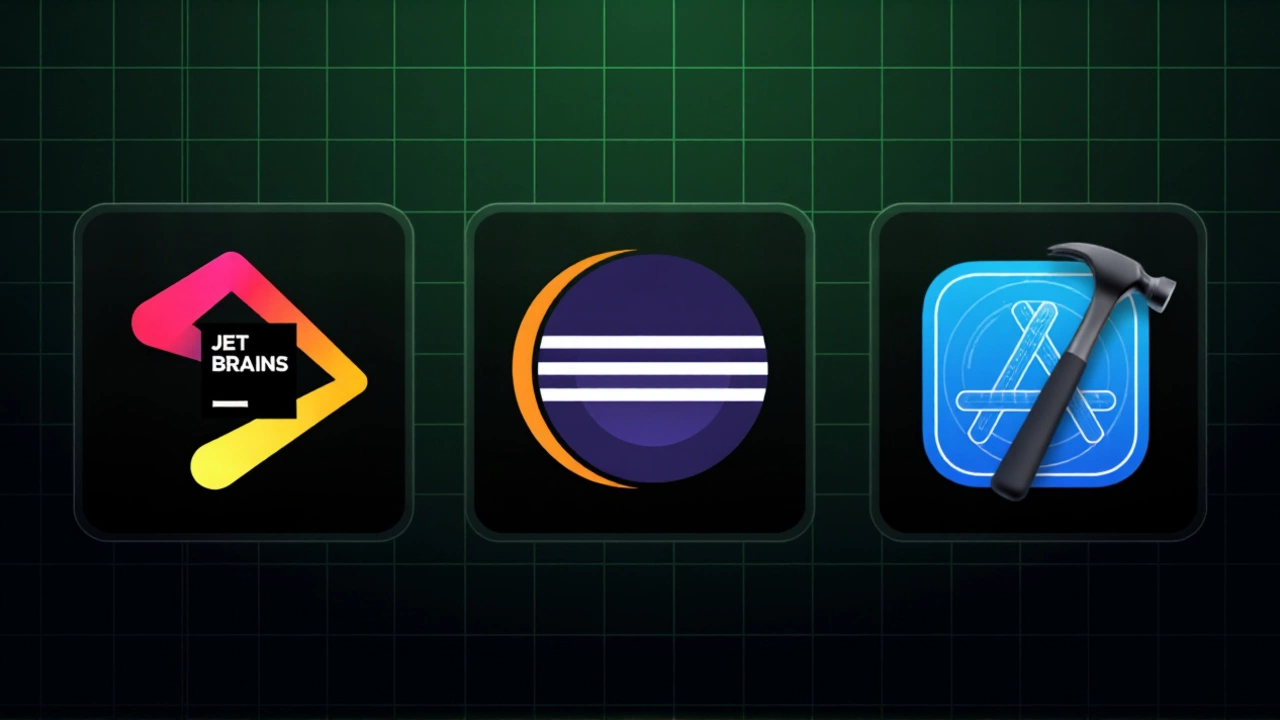At Microsoft Ignite 2025, held in mid-November 2025 with official announcements rolling out on November 18–19, Microsoft didn’t just update its AI tools—it rewrote the rules for enterprise AI governance. The company launched Agent 365, a new control plane designed to bring order to the chaotic proliferation of AI agents inside companies, and rolled out a suite of Security Copilot agents to detect and block threats like prompt injection attacks before they spread. The keynote, described by tech analyst Tony Redmond as a 150-minute marathon, drew spontaneous applause when Security Copilot was unveiled—a rare moment of genuine excitement at a corporate event.
Why AI Sprawl Is a Corporate Emergency
It’s not science fiction anymore. Enterprises are drowning in AI agents. Employees are building custom Copilot assistants in Microsoft Copilot Studio to draft emails, analyze spreadsheets, schedule meetings, even negotiate vendor contracts. But without oversight, these agents become invisible risks—shadow AI systems running with no audit trail, no permissions, no security monitoring. One Fortune 500 company recently discovered over 200 unregistered AI agents in its Teams channels alone. That’s not innovation. That’s a compliance nightmare.Enter Agent 365. It’s not another AI tool. It’s the first enterprise-wide dashboard that sees every AI agent—registered or not. Built into the Microsoft 365 admin center and available immediately through the Frontier program, Agent 365 maps out which departments are using AI most aggressively, flags high-risk workflows, and automates cleanup of stale or unauthorized agents. According to Microsoft’s Ignite 2025 Book of News, it reduces operational overhead by up to 40% in early adopters and cuts storage costs tied to redundant AI-generated files.
The Security Copilot Breakthrough
If Agent 365 is the radar, then Security Copilot is the interceptor. Microsoft announced three new Security Copilot agents for Microsoft Intune: the Change Review Agent, Policy Enforcement Agent, and Threat Response Agent. Each one operates like a tireless security analyst, watching endpoint changes, validating policy compliance, and automatically isolating suspicious behavior.Here’s the game-changer: real-time monitoring during agent execution is now generally available. Admins can plug in Microsoft Defender, CrowdStrike, or even custom scripts to watch what an AI agent is doing as it runs. If an agent tries to scrape sensitive data from a SharePoint site using a crafted prompt, the system catches it—before it exfiltrates anything. This isn’t post-incident forensics. It’s live prevention.
Every agent built in Copilot Studio now gets a unique Microsoft Entra Agent ID, like a digital passport. That means you can track every AI assistant across Teams, Outlook, and Power Platform—not just the ones you approved. It’s the first time enterprises have had full visibility into their AI fleet.

Agent Mode Goes Mainstream
Beyond security, Microsoft is making AI agents part of everyday work. Agent Mode in Word, Excel, and PowerPoint lets users ask Copilot to “draft a Q4 report using last quarter’s sales data, then summarize it for the board.” The AI doesn’t just write—it pulls data, formats tables, checks for consistency, and even suggests visuals. No more copy-pasting from six different files.And it’s not just for power users. With the new Ask Copilot taskbar integration, employees can type @ to summon an agent directly from any app. Want to pull meeting notes from Teams and turn them into a project plan? Just ask. Work IQ, Microsoft’s new organizational intelligence layer, feeds these agents with context from HR records, calendar data, and shared mailboxes—making responses smarter and more accurate.
What’s Next? The Governance Race
Microsoft isn’t alone in this race. Google’s Gemini Agents and Amazon’s Bedrock Agents are coming, but Microsoft has the edge: deep integration with Windows, Entra ID, and the 300+ million active Microsoft 365 users. The real question isn’t whether AI agents will be everywhere—it’s whether your company can control them.Charles LaManna, President of Business & Industry Copilot at Microsoft, put it bluntly: “We’re not asking companies to rebuild their systems. We’re giving them the tools to govern what already exists.” That’s the quiet brilliance here. Instead of fighting shadow IT, Microsoft is making it visible—and manageable.
By early 2026, these features will roll out to all commercial customers. But for now, only Frontier program participants have early access. That’s a strategic move: Microsoft is testing governance at scale with its most sophisticated clients before opening the floodgates.

Why This Matters to You
If you’re in IT, security, or compliance, this changes everything. AI isn’t just a productivity tool anymore—it’s a regulatory risk. The EU’s AI Act, the U.S. Executive Order on AI, and new SEC disclosure rules all demand accountability. Agent 365 and Security Copilot aren’t optional upgrades. They’re your first line of defense.Organizations that delay will face three problems: untracked AI generating inaccurate compliance reports, agents leaking sensitive data through poorly designed prompts, and auditors asking, “Who approved this?”
Frequently Asked Questions
How does Agent 365 detect shadow AI agents?
Agent 365 scans Microsoft 365 environments—including Teams, SharePoint, and Copilot Studio—for AI activity that lacks a registered Entra Agent ID. It uses behavioral patterns, such as repeated file creation, unusual data access, or automated message scheduling, to identify unregistered agents. Even agents built outside official channels leave digital footprints that Agent 365 can trace back to user accounts and devices.
Can Security Copilot stop prompt injection attacks in real time?
Yes. Security Copilot monitors agent execution streams and compares inputs against a library of known malicious prompt patterns. If a user submits a prompt designed to trick an agent into revealing internal documents, the system blocks the request, logs the attempt, and alerts administrators. Real-time monitoring with Microsoft Defender or third-party tools allows organizations to apply custom detection rules tailored to their data sensitivity levels.
Who can access Agent 365 right now?
Agent 365 is currently available only to organizations enrolled in Microsoft’s Frontier program, which includes select enterprise customers with advanced AI adoption. General availability for all commercial Microsoft 365 subscribers is expected in Q2 2026. Early adopters include financial services, healthcare, and government contractors handling regulated data.
Do I need new hardware or licenses to use these features?
No. Agent 365, Security Copilot, and Agent Mode require no new hardware. They’re cloud-based features included in Microsoft 365 E3/E5 and Business Premium plans. However, advanced capabilities like Work IQ and computer use automation require an E5 license. Organizations using older plans will need to upgrade to access the full suite of AI governance tools.
How is this different from Microsoft 365 Copilot?
Microsoft 365 Copilot is an AI assistant for individual users. Agent 365 and Security Copilot are enterprise-wide governance and security platforms. Think of Copilot as a worker, and Agent 365 as the HR and security department that oversees every worker’s actions, permissions, and risks. One helps you write an email. The other ensures you don’t accidentally leak customer data while doing it.
What’s the timeline for full rollout?
Agent 365 and Security Copilot agents are available now via the Frontier program. General availability for all commercial users begins in Q1 2026. Agent Mode in Word, Excel, and PowerPoint will roll out gradually through 2026, with full integration into Windows 11 expected by mid-year. Work IQ will be available to all E5 customers by September 2026.

 Father Ted Creator Graham Linehan Guilty of Damaging Trans Activist’s Phone, Cleared of Harassment
Father Ted Creator Graham Linehan Guilty of Damaging Trans Activist’s Phone, Cleared of Harassment
 Bears Take on Commanders in High‑Scoring Monday Night Football Showdown
Bears Take on Commanders in High‑Scoring Monday Night Football Showdown
 What's your go-to quick and easy dinner you like to cook?
What's your go-to quick and easy dinner you like to cook?
 UFC Qatar: Short-Notice Heavyweight Waldo Cortes-Acosta Knocks Out Shamil Gaziev for $50K Bonus
UFC Qatar: Short-Notice Heavyweight Waldo Cortes-Acosta Knocks Out Shamil Gaziev for $50K Bonus
 What are the list of good veg Indian recipe websites?
What are the list of good veg Indian recipe websites?